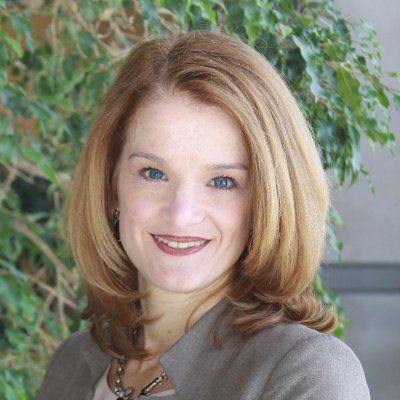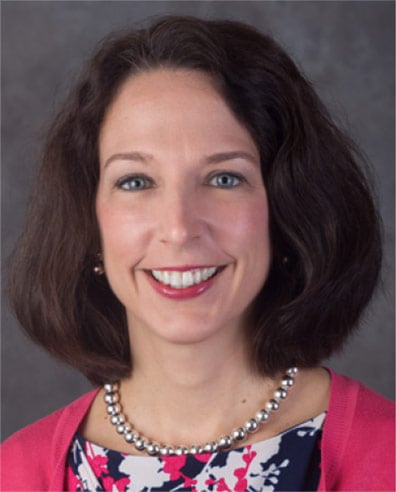 |
|
|
Nancy Byatt, DO, MS, MBA |
|
 |
|
|
Tiffany Moore Simas, MD, MPH, MEd |
New recommendations from the American College of Obstetricians for postpartum care put mood and emotional wellbeing at the top of the list of what obstetrician/gynecologists should pay attention to in their patients during the so called “fourth trimester” after giving birth. Depression during and after pregnancy affects one in seven women and has profound implications for the overall health of the mother, new baby and other family members, according to the Centers for Disease Control.
But most obstetricians do not have formal training on how to screen, assess, treat or refer women with perinatal depression.
Enter Lifeline4Moms, a new center that helps obstetricians and other primary care providers screen, diagnose and refer women suffering from depression during and after pregnancy for treatment. The program was created at UMass Medical School by Nancy Byatt, DO, MS, MBA; Tiffany Moore Simas, MD, MPH, MEd; and colleagues.
“As an ob/gyn, when caring for women, I daily see women suffering from depression in pregnancy and the year following delivery,” said Dr. Moore Simas, associate professor of obstetrics & gynecology, pediatrics, psychiatry and quantitative health sciences. “The American College of Obstetricians and Gynecologists encourages providers to screen women for depression, but screening is insufficient to improve outcomes and thus it must be paired with appropriate treatment and follow-up. Lifeline4Moms helps the health community to do this.”
Lifeline4Moms provides expert program development and implementation assistance; training and workforce development; consultation; evaluation; and opportunities for collaborations with other health care organizations and states working to integrate mental health care into perinatal care. Based on the Massachusetts Child Psychiatry Access Program for Moms (MCPAP for Moms) developed by Dr. Byatt and colleagues at UMMS, Lifeline4Moms now brings a comprehensive, integrated model of care to providers and patients nationwide.
“Despite the availability of evidence-based treatments, most maternal mental health disorders are unrecognized and untreated,” said Byatt, associate professor of psychiatry, obstetrics & gynecology and quantitative health sciences and medical director for MCPAP for Moms. “We have been approached by many states and health plans seeking to implement a program like ours for clinical consultation. Lifeline4Moms will help meet this demand.”
Serving every ob/gyn practice in Massachusetts and thousands of women since its launch in 2014, MCPAP for Moms gives provider education and tools about best practices, and immediate telephone consultation with a psychiatrist for rapid access to psychiatric expertise and mental health resources for pregnant and postpartum women. The program’s training toolkit covers evidence-based guidelines for depression screening, treatment and referral; real-time telephone consultation with program psychiatrists and a staff of care coordinators; and links to community-based resources such as support groups to help women get services close to home.
Similarly, the Lifeline4Moms suite of services and tools includes consultation, technical assistance and training materials customized to local needs and resources. With new funding from the U.S. Department of Health and Human Services for other states to implement programs similar to MCPAP for Moms, Lifeline4Moms is ready to assist.
New with Lifeline4Moms is a mobile app to help ob/gyns address the mental health needs of pregnant and postpartum patients during regular pre- and postnatal office visits. Developed by Byatt and Moore Simas in collaboration with biomedical engineering faculty and students at WPI, the app includes guidelines for depression screening; different treatment options; and how to discuss screening results and treatment options with patients. The app will further help assess patients for bipolar disorder, which, if present, would change their treatment options.
“We are leading the nation in establishing best practices and the evidence base for integrating mental health care into primary care settings, and are well suited to support others in program design, development, implementation and evaluation,” said Byatt.
Byatt and Moore Simas will introduce Lifeline4Moms to obstetricians at the annual meeting of the American College of Obstetricians and Gynecologists in Austin on April 28 and 29.
Related stories on UMassMedNow:
UMMS perinatal expert explains why all mothers should be screened for depression during, after pregnancy
Perinatal depression expert urges calm on study linking antidepressant use to autism
Byatt tells Reuters Health new study will help pregnant women decide about antidepressants
Expert’s Corner: Consider all options for treating depression during pregnancy
WCVB-TV: New mothers getting help for postpartum depression through new state program led by UMMS